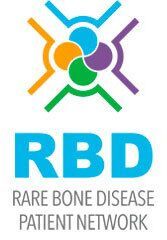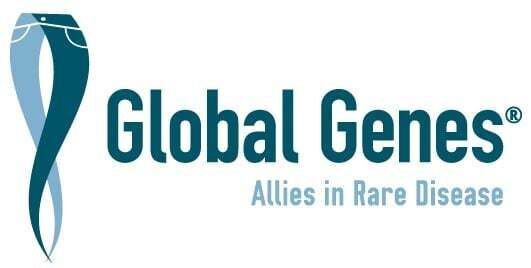We are excited to share an insightful conversation with Griffin McDaniel, an MD-PhD student at the University of Cincinnati and Cincinnati Children’s Hospital, whose research focuses largely on Kaposiform Lymphangiomatosis (KLA). As part of the Medical Scientist Training Program, Griffin conducts his research under the mentorship of Tim LeCras, PhD. His dedication to advancing KLA research has earned him notable recognition, including the inaugural Power-of-One Fellowship in 2023 to support his investigation into the causes of KLA and the 2024 Alfie Milne Young Investigator Award, which supports emerging leaders in complex lymphatic anomaly research to improve treatment options and quality of life for the CLA patient community. In this interview, McDaniel provides a deep dive into his research on vascular anomalies, the role of genetic mutations, and the future of treatment strategies for KLA.
A Personal and Scientific Journey into Vascular Anomalies
McDaniel's research journey began with a four-week rotation in Dr. Tim LeCras’ lab, where he developed a keen interest in vascular anomalies. What drew him in was the intersection of this field with cancer research—many of the genetic mutations in KLA are also found in cancers like melanoma. His passion also stems from the ability to collaborate with clinicians, scientists, and patient advocacy groups, making his work both scientifically and personally rewarding.
Unraveling the Nras Mutation’s Role in KLA
A central focus of McDaniel’s research is the Nras Q61R mutation, which plays a crucial role in KLA. Normally, the Nras protein regulates essential cellular functions, like cell growth and movement. However, in KLA, the mutation causes Nras to remain constantly active, leading to abnormal cell behavior, excessive proliferation, and irregular vascular structures.
To better understand the disease, McDaniel and his team have introduced the mutation into both human endothelial cells and mouse models. By observing how these cells behave in a controlled setting, researchers can identify potential therapeutic targets.
Recent Breakthroughs in KLA Research
Two major advancements have shaped the trajectory of KLA research in recent years. In 2017, Dr. LaCroix’s team identified Angiopoietin-2 (Ang-2) as a biomarker for KLA, revealing significantly elevated levels in affected patients. This discovery has been instrumental in developing models that mimic the disease in the lab. In 2019, another study confirmed the presence of the Nras Q61R mutation in a significant number of KLA cases, providing a direct genetic link to the disease.
Building Better Models to Advance Treatment
One of the biggest challenges in KLA research is the lack of reliable preclinical models to test new treatments. To address this, McDaniel’s team has developed two novel mouse models:
- A model where the Nras Q61R mutation is expressed throughout all blood vessels, leading to symptoms like enlarged spleens, vascular lesions, and elevated Ang-2 levels—mimicking key aspects of KLA.
- A model where the mutation is restricted to lymphatic vessels, resulting in lymphatic overgrowths and irregular vessel structures similar to what is seen in patients.
These models offer a powerful platform for screening potential treatments before they reach clinical trials.
The Future of KLA Research and Treatment
McDaniel is particularly interested in understanding the pathways affected by the Nras mutation and identifying potential drug targets. His research also explores ways to reduce elevated Ang-2 levels, which could help stabilize blood vessels and reduce disease severity.
Despite the progress made, McDaniel emphasizes that more researchers are needed in this field. He encourages young scientists and medical professionals to explore opportunities in complex lymphatic anomaly research, as their contributions could significantly advance treatment options for patients.
The Role of Advocacy and Collaboration
McDaniel highlights the critical role patient advocacy groups like the LGDA play in driving research forward. By fostering connections between researchers, clinicians, and patients, these organizations help ensure that scientific discoveries translate into real-world impact. He encourages continued collaboration and support from the patient community to push research efforts forward.
Conclusion
Griffin McDaniel’s work represents a hopeful step toward better understanding and treating KLA. His dedication to bridging the gap between laboratory research and patient care is a testament to the power of collaboration in rare disease research.
Watch the full interview to gain deeper insights into his research and the future of KLA treatment.
Every dollar counts! Join LGDA for the 2025 Million Dollar Bike Ride.
Additional Resources Referenced in the Interview
- McDaniel CG, Fox D, Pastura P, Alharbi S, Huppert SS, Cras TDL. Lyve1-Driven NrasQ61R Causes Edema, Enlarged Lymphatic Vessels, and Hepatic Vascular Defects in Embryonic Mice. Pediatr Blood Cancer. 2025 Mar;72(3):e31492. doi: 10.1002/pbc.31492. Epub 2024 Dec 26. PMID: 39723841.
- Pastura P, McDaniel CG, Alharbi S, Fox D, Coleman B, Malik P, Adams DM, Le Cras TD. NRAS(Q61R) mutation drives elevated angiopoietin-2 expression in human endothelial cells and a genetic mouse model. Pediatr Blood Cancer. 2024 Jul;71(7):e31032. doi: 10.1002/pbc.31032. Epub 2024 May 6. PubMed PMID: 38711167; PubMed Central PMCID: PMC11116044.
- Engel ER, Le Cras TD, Ricci KW. How we use angiopoietin-2 in the diagnosis and management of vascular anomalies. Pediatr Blood Cancer. 2024 May;71(5):e30921. doi: 10.1002/pbc.30921. Epub 2024 Mar 4. PubMed PMID: 38439088.
- McDaniel CG, Adams DM, Steele KE, Hammill AM, Merrow AC, Crane JL, Smith CL, Kozakewich HPW, Le Cras TD. Kaposiform lymphangiomatosis: Diagnosis, pathogenesis, and treatment. Pediatr Blood Cancer. 2023 Apr;70(4):e30219. doi: 10.1002/pbc.30219. Epub 2023 Jan 22. Review. PubMed PMID: 36683202; PubMed Central PMCID: PMC10018800.
- Boscolo E, Pastura P, Schrenk S, Goines J, Kang R, Pillis D, Malik P, Le Cras TD. NRAS(Q61R) mutation in human endothelial cells causes vascular malformations. Angiogenesis. 2022 Aug;25(3):331-342. doi: 10.1007/s10456-022-09836-7. Epub 2022 Apr 7. PubMed PMID: 35391614; PubMed Central PMCID: PMC9631803.
- Le Cras TD, Mobberley-Schuman PS, Broering M, Fei L, Trenor CC 3rd, Adams DM. Angiopoietins as serum biomarkers for lymphatic anomalies. Angiogenesis. 2017 Feb;20(1):163-173. doi: 10.1007/s10456-016-9537-2. Epub 2016 Dec 18. PubMed PMID: 27990590.






